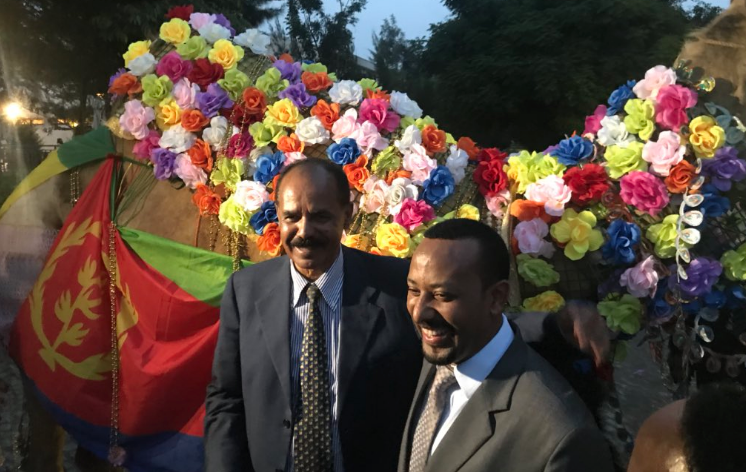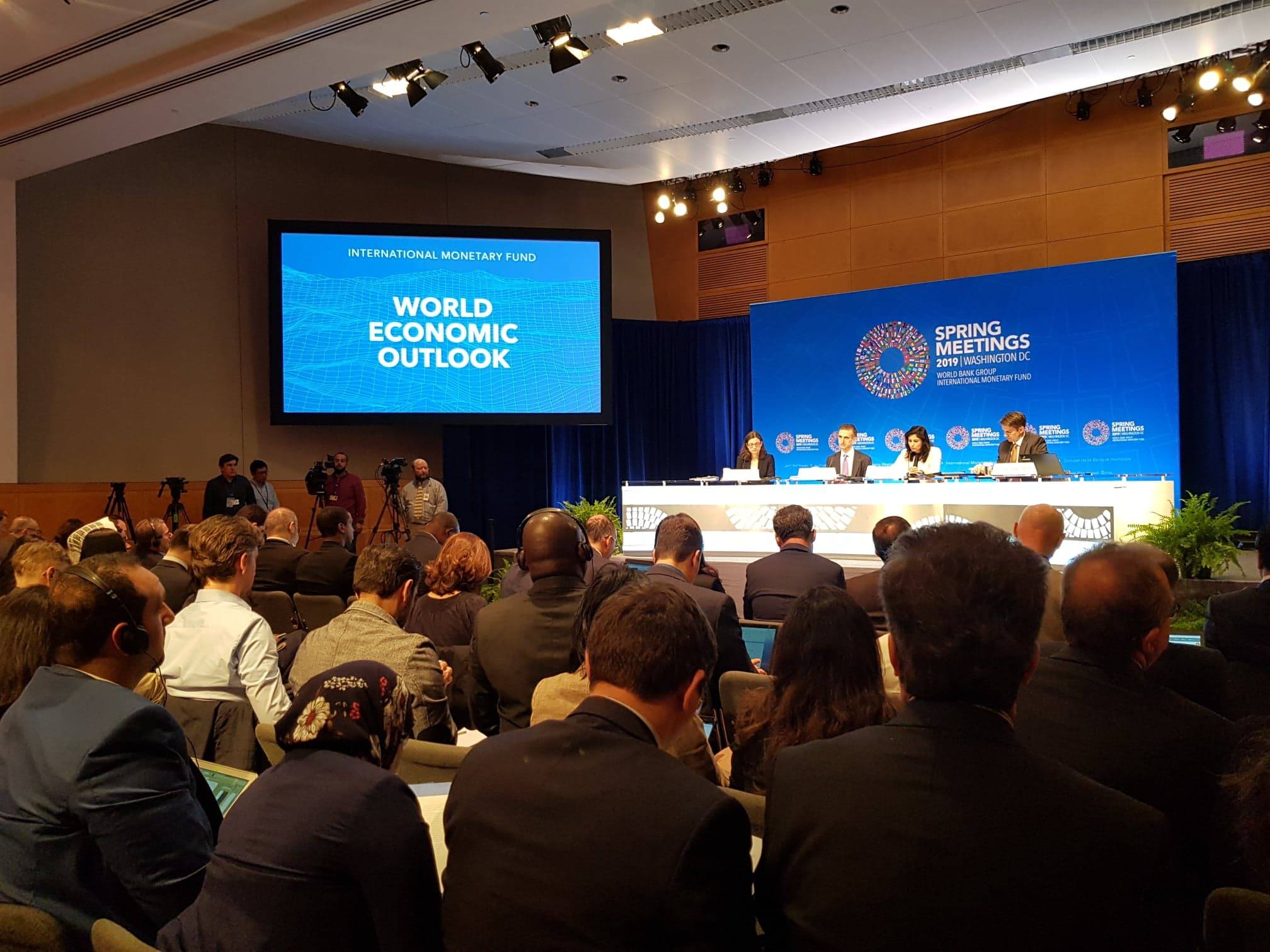
Fortune News | Jan 19,2024
May 25 , 2019
By FASIKA TADESSE ( FORTUNE STAFF WRITER )
 The rapprochement with Ethiopia and the lifting of international sanctions would have a positive prospect of dragging Eritrea out of its economic morass and its ‘difficult situation’, according to a staff report released by the International Monetary Fund.
The rapprochement with Ethiopia and the lifting of international sanctions would have a positive prospect of dragging Eritrea out of its economic morass and its ‘difficult situation’, according to a staff report released by the International Monetary Fund. The rapprochement with Ethiopia and the lifting of international sanctions would have a positive prospect of dragging Eritrea out of its economic morass and its ‘difficult situation’, according to a staff report released by the International Monetary Fund.
Led by Bhaswar Mukhopadhyay, the IMF team was in Asmara from May 13–22, 2019, for a consultation on its annual report. During the 10-day stay of the team, the mission met Eritrean ministers of Finance, Health, Tourism, National Development and Agriculture and the acting governor of the Central Bank to compile the report, which is the first in a decade.
The Eritrean-Ethiopian War and the related international isolation deprived the country of vital investment, trade opportunities and external support, leaving the economy in a 'problematic situation,' according to the staff report.
“Eritrea has just emerged from twenty years of conflict with Ethiopia and a decade of sanctions imposed by the international community,” reads Mukhopadhyay’s statement in the report.
Led by Bhaswar Mukhopadhyay, the IMF team was in Asmara from May 13–22, 2019, for a consultation on its annual report.
The mission’s report also indicates that the information base of economic developments in the country has deteriorated, giving rise to data and capacity constraints.
Dominated by agriculture and mining, Eritrea's economy is highly vulnerable to shocks, warns the report.
“Most of its population is engaged in rain-fed subsistence agriculture, which is exposed to repeated droughts,” it adds.
Due to regional drought, the country's GDP fell sharply in 2017.
The drought has pushed the malnutrition rates in Eritrea to exceed emergency levels, according to the Nutrition Sentinel Site Surveillance System of the United Nations Children's Fund.
A sustained period of high fiscal deficits, reversed over the past three years, has led to a massive public debt burden, a vulnerable banking sector and scarce foreign exchange, according to the report.
Despite these obstacles, the report praised the authorities for achieving 'remarkable progress' in the health and educational sectors and for having prioritised public investments in earlier years.
Looking ahead, the near-term outlook for real GDP growth is challenging due to the tight fiscal situation and existing restrictions on economic activity, forecasts the report.
"Over the medium-term, prospects for a pick-up in growth are promising, including new mining projects coming on stream," reads the report.
The IMF also recommends the government restore the health of the fiscal and financial sectors, which are essential to the macroeconomic stability.
Medhane Tadesse (Prof.), an academic specialising in conflict management within the Horn of Africa, also believes that the government’s policy had a more significant impact on the economy than the international sanctions.
“The policies were not targeted at attracting foreign investment,” said Medhane, but “rather restricted economic activity.”
To ensure macroeconomic stability, the IMF recommends that the government implement broader economic reforms to help deliver inclusive development.
PUBLISHED ON
May 25,2019 [ VOL
20 , NO
995]

Fortune News | Jan 19,2024

Fortune News | Apr 09,2019

Fortune News | Aug 28,2021

Editorial | May 18,2024

Viewpoints | May 27,2023

Commentaries | Aug 08,2020

Featured | Jan 02,2021

Commentaries | Nov 23,2019

Viewpoints | Jan 05,2019

Sunday with Eden | Nov 30,2024

Dec 22 , 2024 . By TIZITA SHEWAFERAW
Charged with transforming colossal state-owned enterprises into modern and competitiv...

Aug 18 , 2024 . By AKSAH ITALO
Although predictable Yonas Zerihun's job in the ride-hailing service is not immune to...

Jul 28 , 2024 . By TIZITA SHEWAFERAW
Unhabitual, perhaps too many, Samuel Gebreyohannes, 38, used to occasionally enjoy a couple of beers at breakfast. However, he recently swit...

Jul 13 , 2024 . By AKSAH ITALO
Investors who rely on tractors, trucks, and field vehicles for commuting, transporting commodities, and f...

Jul 5 , 2025
Six years ago, Ethiopia was the darling of international liberal commentators. A year...

Jun 28 , 2025
Meseret Damtie, the assertive auditor general, has never been shy about naming names...

Jun 21 , 2025
A well-worn adage says, “Budget is not destiny, but it is direction.” Examining t...

Jun 14 , 2025
Yet again, the Horn of Africa is bracing for trouble. A region already frayed by wars...